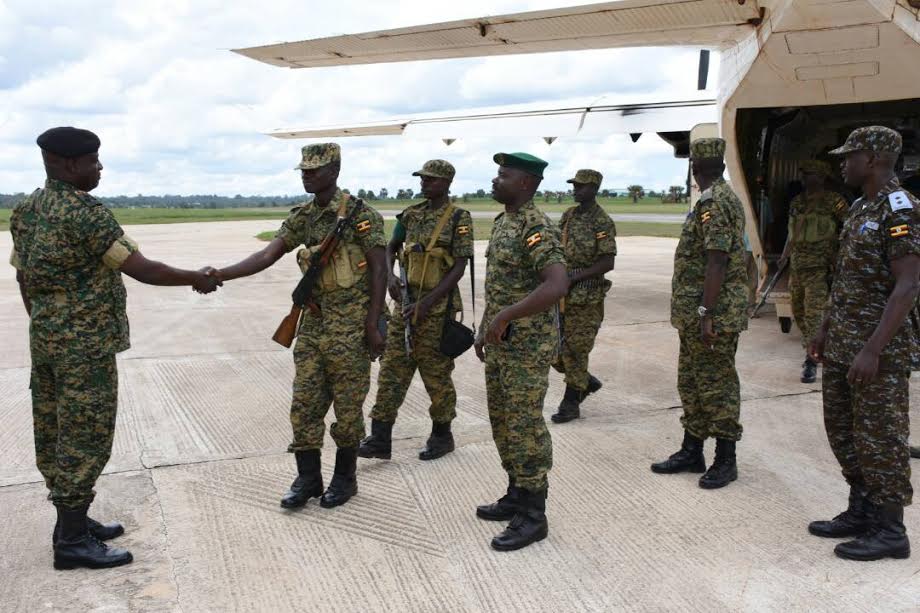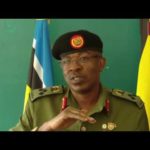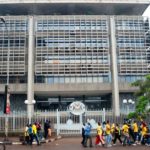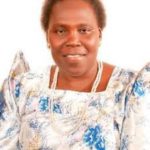Uganda recently announced that its UPDF troops pulled out of Central African Republic but according to the latest human rights watchdog, the soldiers went to CAR to enrich themselves than fighting Joseph Kony.
But as UPDF pulls out, its soldiers are accused of having sexually exploited or abused at least 13 women and girls since 2015, including at least one rape, and threatened some victims to remain silent, Human Rights Watch said today.
It’s against that background that Human Rights Watch has requested the US government to halt military support to UPDF until investigations are complete and the abusers held to account.
“MINUSCA should not consider accepting any Ugandan troops for the UN mission until allegations of sexual exploitation and abuse have been credibly investigated and abusers held to account, Human Rights Watch said,” the Human Rights body appeals.
According to a report released today by Human Rights Watch, a total of 13 women and 3 girls interviewed in early 2017 described the exploitation and abuse since 2010 by Ugandan soldiers in the southeastern town of Obo, where Ugandan forces were based.
However, responding to the allegations in the report, UPDF Spokesperson, Brig. Richard Kalemire acknowledged that there are elements within the army that went to CAR not to fight but to exploit women. Kalemire revealed that as an institution of ‘clean’ record, the army has instituted an investigation in the allegation.
“We have taken note of what is contained in the report. There are elements within the UPDF that have been exploiting women in CAR but our record is clear on errant soldiers” Kalemire said.
Adding “There are already some soldiers that are before the court martial and once found guilty , they will be punished”
Two of the women were girls when the exploitation or abuse took place. Two women and one girl said that soldiers threatened reprisals if they told Ugandan and United Nations investigators about the abuse.
“As counter-LRA operations wind down, Uganda’s military should not ignore allegations of sexual exploitation and rape by its soldiers in the Central African Republic,” said Lewis Mudge, Africa researcher at Human Rights Watch.
“Ugandan and African Union authorities should conduct proper investigations, punish those responsible, and make sure that the women and girls who were sexually abused or exploited get the services they need.”
Fifteen of the women and girls interviewed said they became pregnant, but in each case the soldier who fathered the child left the country and has not provided any support.
“The 16 cases documented by Human Rights Watch clearly under-represent the full extent of sexual exploitation and abuse by the Ugandan forces, not only because sexual violence is generally underreported, but also because others, including the UN and local health workers, have documented other cases, Human Rights Watch said. In the Central African Republic, women and girls often do not report sexual violence or exploitation due to shame, stigma, or fear of retaliation.”
The report further states that in 2016, the UN Office of the High Commissioner of Human Rights reported 14 cases of rape by Ugandan forces in the country, including cases involving victims who were children at the time. Four of these cases are among those Human Rights Watch documented.
According to an internal UN report from 2016 obtained by Human Rights Watch, UN investigators in Obo registered 18 cases of sexual violence or harassment by Ugandan soldiers against women and girls who were afraid to give details out of fear of reprisals. The report states that investigators also obtained information about 44 women and girls with children fathered by Ugandan soldiers; the UN team interviewed 12 of them, all girls.
In January 2017, the BBC reported cases of rape by Ugandan soldiers in the Central African Republic, including of a 12-year-old girl who gave birth. The Ugandan military said at the time that it conducted an investigation in Obo and found no evidence of wrongdoing.
Human Rights Watch submitted a series of questions about the allegations to the Ugandan Ministry of Defence and Veterans Affairs on April 20, including about any investigations or disciplinary action, but the ministry has not replied.
The Ugandan military has been deployed in the country since 2009 as a part of the African Union’s Regional Task Force to eliminate the Uganda rebel group, the Lord’s Resistance Army (LRA), but recently announced it is withdrawing its troops.
While in Obo, Ugandan forces received logistical and intelligence assistance from the United States.
“The US government should condition future support for the Ugandan military on Uganda promptly and thoroughly investigating the allegations of sexual exploitation and abuse in the Central African Republic and punishing the abusers, among other concerns, Human Rights Watch said.”
Rape; sex in exchange for money, goods, or services; and sex with anyone under 18 by African Union (AU) military, police, or civilians qualify as sexual exploitation and abuse, and are prohibited by the AU. The AU states a zero-tolerance policy for sexual exploitation and abuse.
This is not the first time the UPDF is being accused of abuse and sexual exploitation.
In 2014, Human Rights Watch’s report indicated that AU soldiers in Somalia mainly from UPDF, relying on Somali intermediaries used a range of tactics, including humanitarian aid to coerce vulnerable women and girls into sexual activity.
“They have also raped or otherwise sexually assaulted women who were seeking medical assistance or water at Amisom bases,” the press release said








